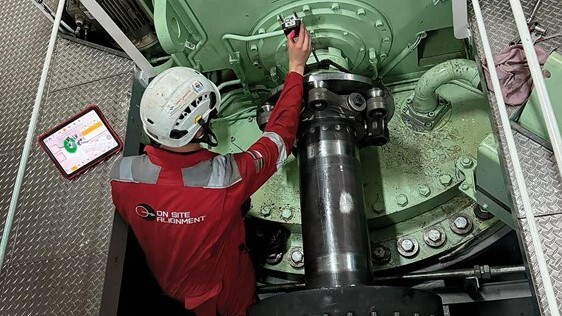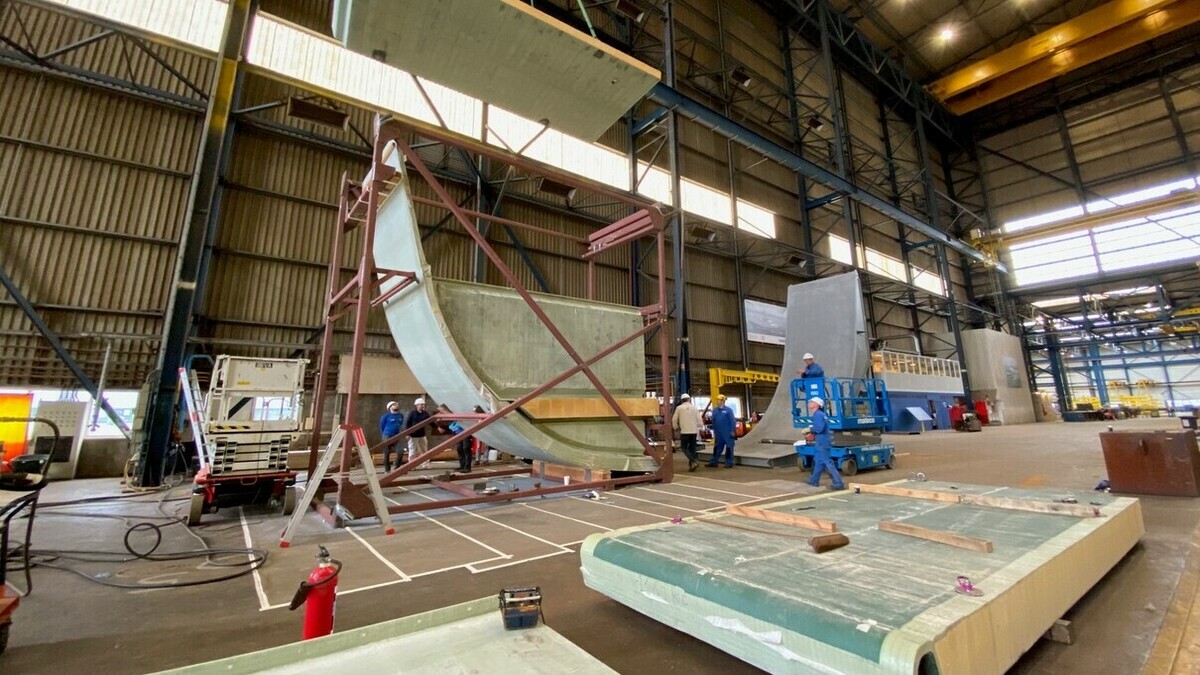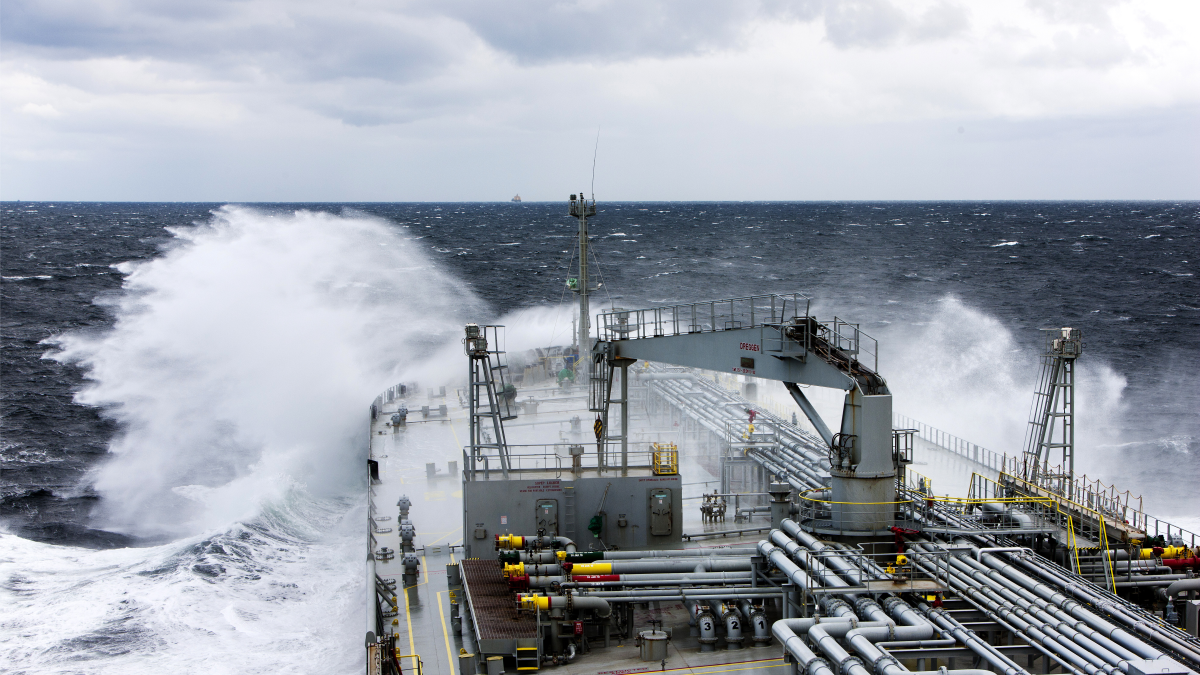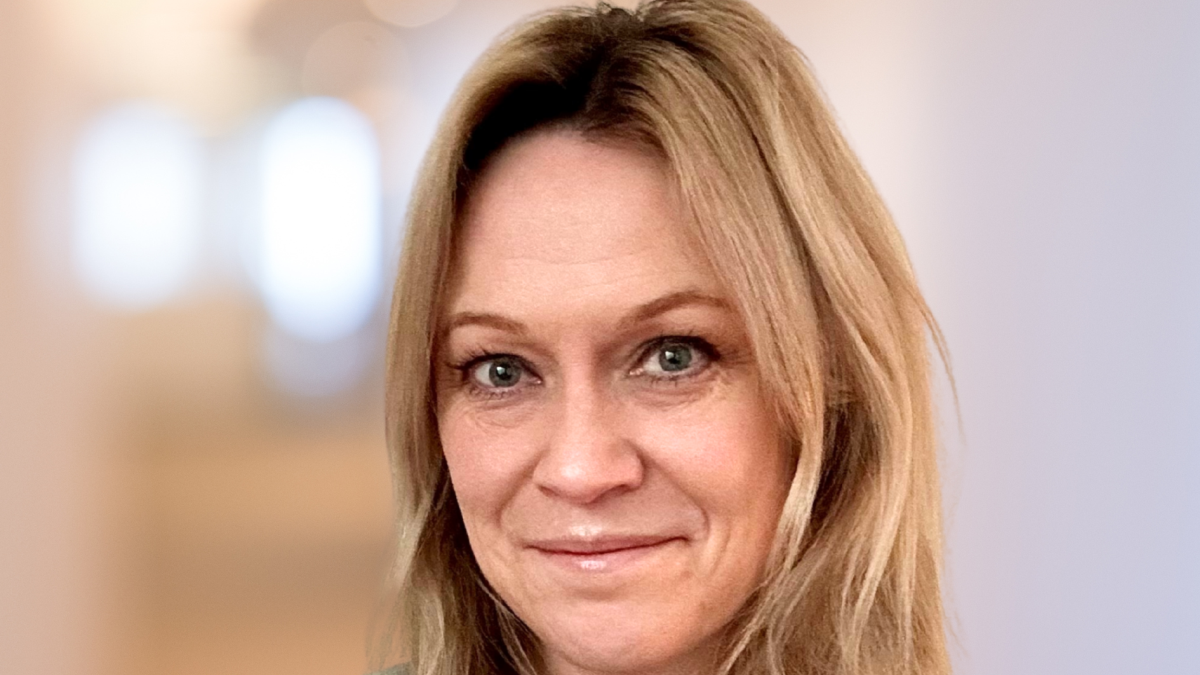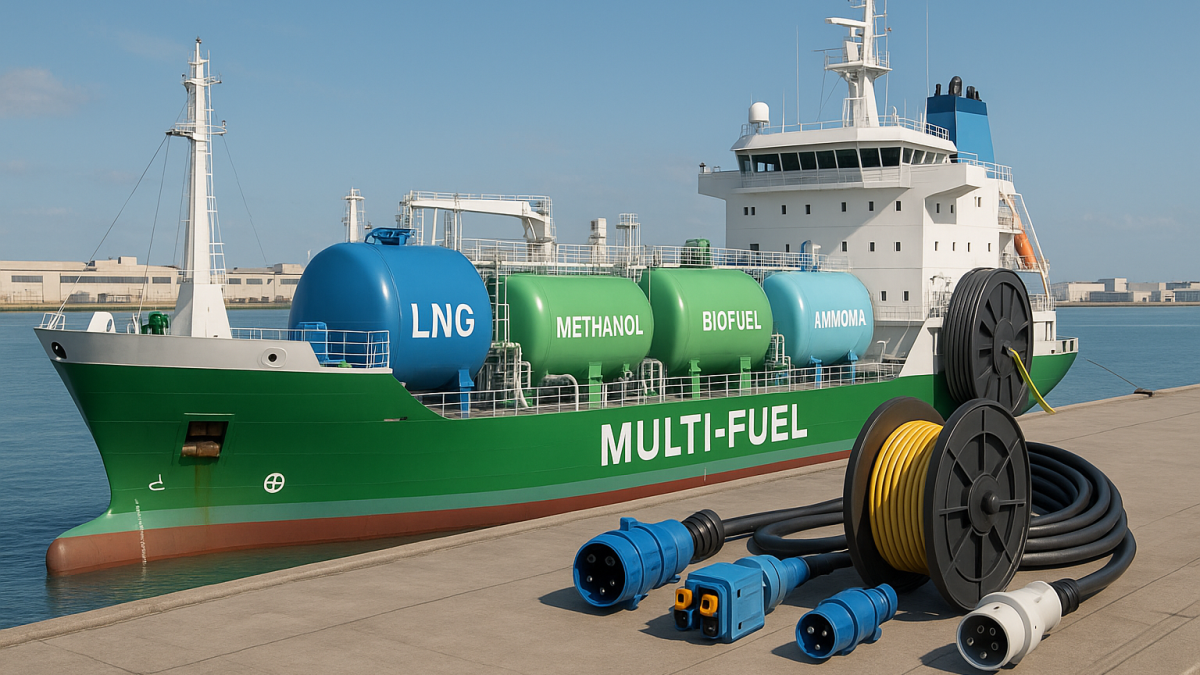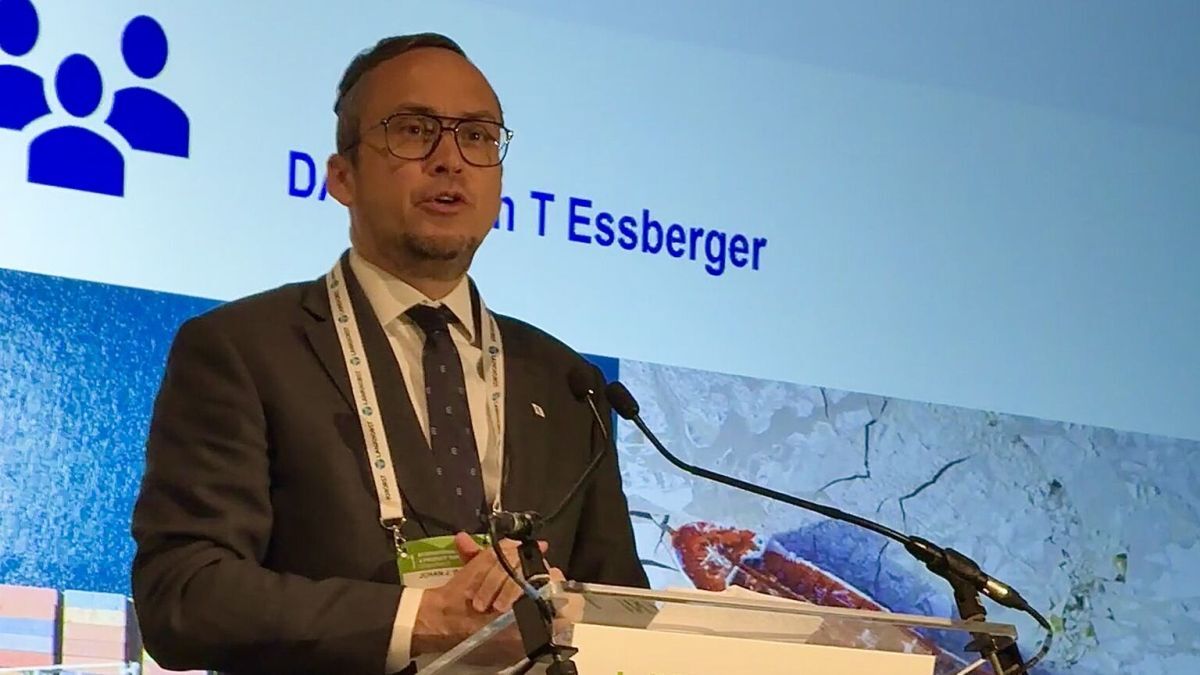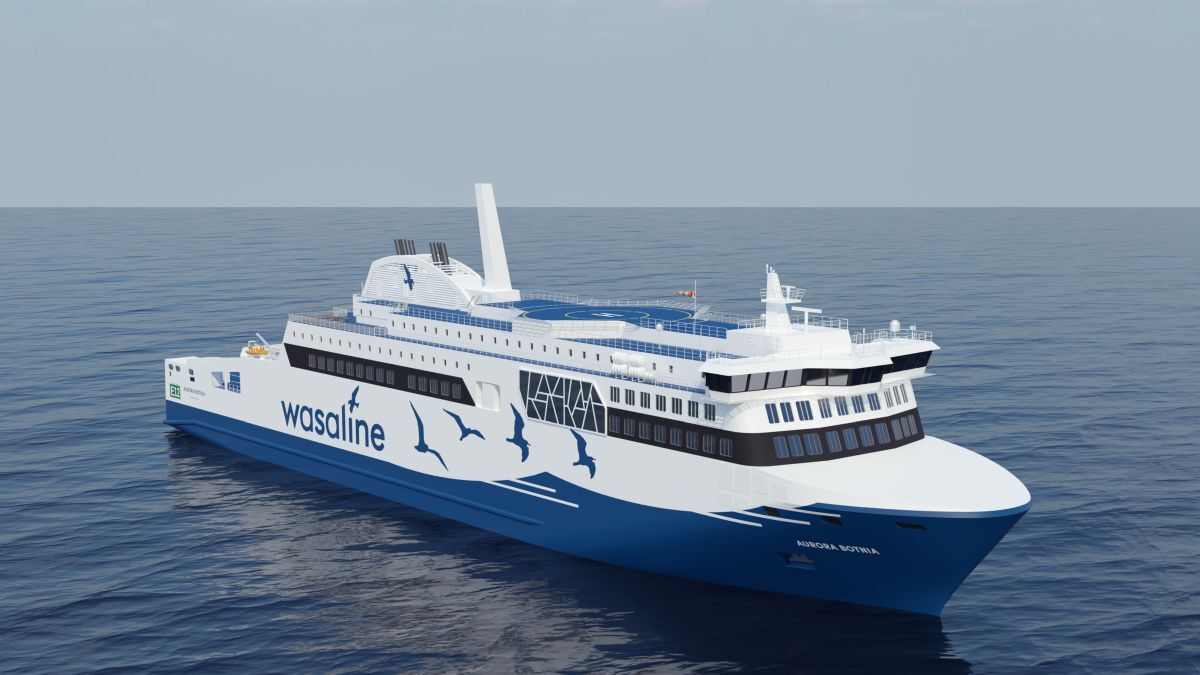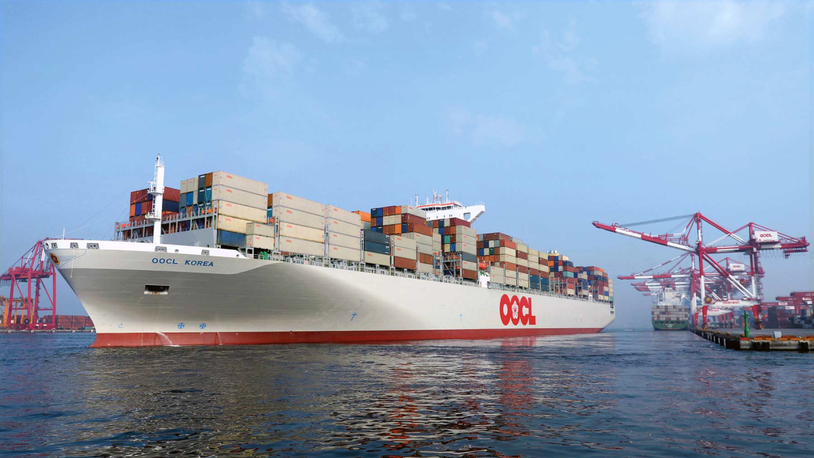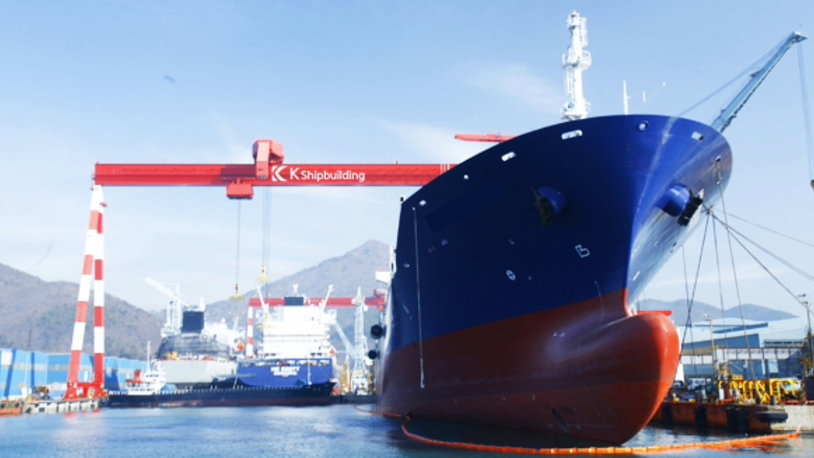Business Sectors
Events
Contents
Damen unveils composite hull for RAMSSES project
Damen said the Realisation and Demonstration of Advanced Material Solutions for Sustainable and Efficient Ships (RAMSSES) project has taken another step towards realisation
On 18 July 2020, the project’s partners unveiled the 6-m high composite hull section at Damen Schelde Naval Shipbuilding (DSNS) in Vlissingen-East, the Netherlands.
This custom-made hull has been in development since 2017 and represents one of 13 demonstrators that make up the RAMSSES project. The project will now proceed with a series of tests to demonstrate the viability of large composite ships as a sustainable shipping option.
Composite shipbuilding is touted as a way towards achieving greater sustainability in shipping. Composite materials are lightweight and do not corrode as steel does. The RAMSSES partners are constructing a vessel weighing up to 40% less than a steel equivalent which is expected to benefit from a considerable reduction in fuel consumption and emissions.
In the absence of approved guidelines, regulations covering composite shipbuilding only cover vessels up to 500 tonnes and 25 m in length. RAMSSES aims to address this by scaling up the composite technology and capacity to design, produce and market composite vessels up to 85-m long. The vessel will comply with Safety of Life at Sea (SOLAS) and class regulations by validating the production process of large composite structures with economic improvement and performance indicators for fire-resistance, impact resistance and structural robustness.
DSNS and Damen Shipyards Gorinchem developed the baseline design for the project. Airborne UK and InfraCore Company, who have expertise in composites, worked on engineering while German firm Evonik developed the resin to infuse the composites. Following assembly, TNO will perform full-scale tests for validation of design, quality management and structural performance. Bureau Veritas is acting as th consultant on the project.
Damen said the approval process was developed with Research Institutes of Sweden (RISE), Netherlands Maritime Technology Foundation and Bureau Veritas and a hazard identification test has already been performed by RISE and Bureau Veritas to address fire risks.
The RAMSSES project receives funding from the European Union’s Horizon 2020 research and innovation programme.
Get the latest information and viewpoints on maritime issues during Riviera Maritime Media’s series of webinar weeks on key technical subjects in shipping
Related to this Story
Events
Maritime Environmental Protection Webinar Week
Cyber & Vessel Security Webinar Week
The illusion of safety: what we're getting wrong about crews, tech, and fatigue
Responsible Ship Recycling Forum 2025
© 2024 Riviera Maritime Media Ltd.

